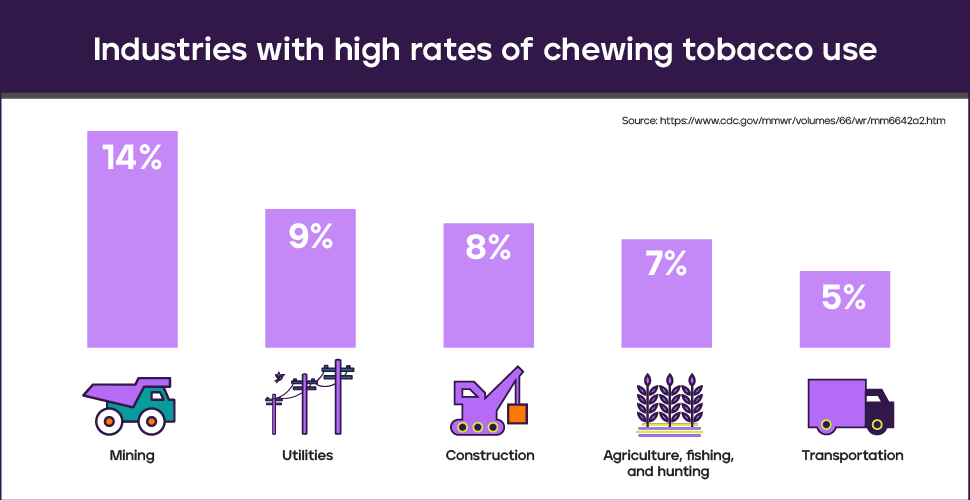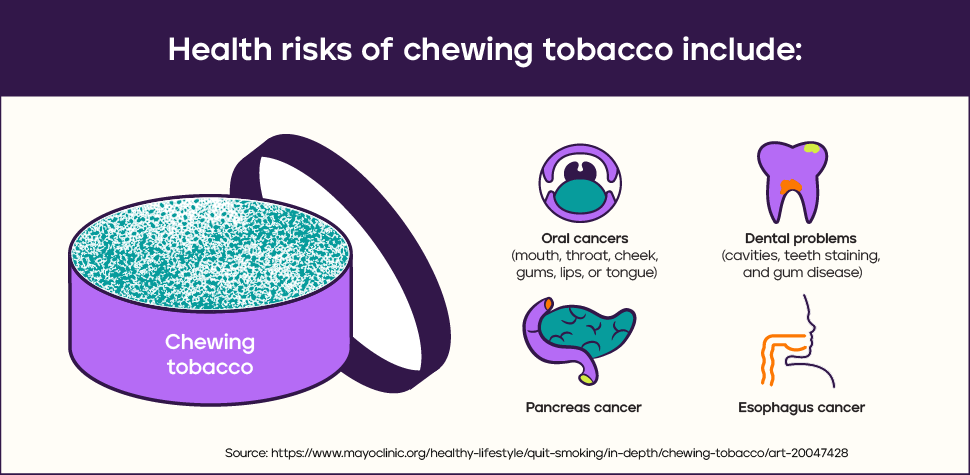Chewing tobacco. Snus. Snuff. No matter what it’s called, smokeless tobacco is dangerous.
Those who provide healthcare benefits to a blue-collar workforce likely already have these terms on their radar. But if you don’t, you should. Here’s why.
The average rate of chewing tobacco use in blue-collar jobs can be up to 7 times higher than among all working adults.
Health and cost impacts of smokeless tobacco
When employees use smokeless tobacco, it can hit the bottom line hard.
Chewing tobacco is linked to several types of cancer and can create costly dental problems. Head and neck cancers in particular are extremely expensive to treat, have a high morbidity, and only 48% of survivors return to work.
3 factors affecting blue-collar use of chewing tobacco
Why is chewing tobacco more popular in certain industries? Several factors make smokeless tobacco use more prevalent with blue-collar workers:
- No smoke break required
Unlike cigarettes, smokeless tobacco doesn’t require workers to leave their workstation to use. This means they have easier access to nicotine throughout the day. As a result, smokeless tobacco can be used continuously, which exposes users to high levels of nicotine, resulting in high levels of dependence.
- Intense levels of job stress
While every job has pressure, blue-collar jobs have unique stressors. Think long hours, for example, with long-haul drivers. In industries such as utilities, construction, mining, and transportation, safety concerns and responsibility for powerful equipment can also intensify job-related stress. To cope, some workers turn to smokeless tobacco for a pick-me-up without having to leave their job for a break.
- Co-workers also use smokeless tobacco
Due to higher usage rates in blue-collar industries, workers who want to quit likely find themselves surrounded by colleagues who still use smokeless tobacco. Worksite tobacco use not only means they have to face temptation all day, but they may also have less co-worker support if they choose to quit.
Ways employers can tackle the issue
With these risks and challenges in mind, seasoned HR professionals know it takes a tailored approach to help chewing tobacco users quit.
This approach should include providing a strong online support network that can offer 24/7 peer support, compassion and accountability to quit. Truth Initiative research, for example, has proven that participation in the EX Community, a thriving social community of current and former tobacco users, is a key driver of quitting success.
In addition to peers, a tailored approach also includes easy access to expert support to help manage cravings and stress without chewing tobacco. Through the EX Program, smokeless tobacco users can live chat tobacco treatment experts for help with building confidence and setting a quit date. Our live chat experts can also help chewing tobacco users choose the right quit medication and dosage, and coordinate home delivery.
Quitting chewing tobacco can seem overwhelming, but with the right support and tools, employees can make a significant change to improve their health—and help your bottom line.






